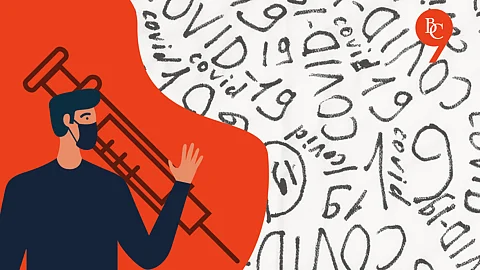

The science on the Covid-19 vaccines is continually evolving, and a new study may change when someone gets their second dose.
In India, Oxford's AstraZeneca vaccine — Covishield, is manufactured by the Serum Institute of India (SII). In light of new research, the vaccine shows higher efficacy rates if a gap of 12-weeks is maintained.
However, according to the Indian vaccination program, the second booster dose is scheduled at only four weeks (28 days). So there is an issue with the varying gaps and the disparity in efficacy caused by it.
The Bridge Chronicle tries to understand the situation.
What is the efficacy issue?
The phase three trial results of Oxford’s AstraZeneca vaccine in the United Kingdom, and Brazil, revealed that giving half the dose first, followed by a second standard dose, led to a striking 90 per cent efficiency. This rate is much higher than the initially known 62 per cent for two standard doses. However, criticism ensued when researchers did not have enough data to back the claim.
Eventually, researchers found that even 62 per cent was not an accurate figure. In fact, the efficacy of the vaccine ranged from 53 to 80 per cent, depending on the interval.
Upon receiving emergency approval of the Oxford AstraZeneca vaccine, UK decided to maintain a dosage interval of 12-weeks. This interval was initially put in place (amidst much criticism) in an effort to avoid stressing the supply of vaccines.
As mentioned earlier, in India, the regulatory directive was to administer the second dose after 4-6 weeks. But according to a recent analysis published in the Lancet, UK’s decision over administering the second jab at the 12-week mark proved to be effective.
A total of 17,178 participant results were studied to understand the changing efficacy. The efficacy of the Covishield vaccine rose from an average of 55.1 per cent to 81.3 per cent. This effectiveness was possible only by extending the dosage interval from less than six weeks to at least 12 weeks.
They also found that the first dose of the vaccine itself can cut coronavirus transmission by 67 per cent, with "no evidence of waning of protection in the three months after the first dose."
Hence, the authors recommended increasing vaccine dose interval to twelve weeks, basis the strong evidence for "a longer interval immunization strategy."
Upon these findings, the World Health Organization’s (WHO) Strategic Advisory Group of Experts on Immunization (SAGE) joined the debate. They recommended "extending the dosage interval from 4 weeks to 8-12 weeks" purely to improve efficacy.
What are the challenges of longer dosing intervals?
Though single-dose vaccines are ideal during a pandemic, helping in reducing the need for repeated visits. The second-best alternative is a 3–4-week interval between doses.
This gap allows the immune system to be ready for the booster, while also enabling the authorities to manage larger populations. Another reason why, experts disagree with extending the interval was that it impedes the objective of providing immunity, to a part of the population.
Sanjay Mishra, a scientist at the Vanderbilt University Medical Centre in Tennessee, acknowledged these challenges. In his press release says, "delaying the second dose could run the risk of vaccine-makers not being able to replenish the supply of the second doses in time."
India to continue with the four-week gap
Post the recommendations from WHO – on extending the dosage interval – the National Technical Advisory Group on Immunization (NTAGI) met on February 13, 2021, to review the issue. They found the extension unnecessary.
Moreover, the National Expert Group on Vaccine Administration for Covid-19 (NEGVAC) met during the second week of March 2021 to discuss the same. They also decided to continue with the current dosage interval of four weeks.
The Bridge Chronicle spoke to Dr Sanjay Patil, chairman of the Hospital Board of India, to understand this decision better.
On being asked about why India continued with the 4-week dosage interval regime, he remarked, "All vaccines have been approved with certain testing." He continues, "More data is required, however, looking at the company ligature by SII, the appropriate dosage interval for the Covishield vaccine is 4-6 weeks - in line with the Government's decision. Also, it is in accordance with ICMR (Indian Council of Medical Research) guidelines"
WHO’s Dr Swaminathan on what India should do?
Dr Soumya Swaminathan, WHO chief scientist, spoke about the vaccine dosage interval in the episode – Science 5 with WHO.
She said, "It’s important to get the second dose if the vaccine is a two-dose schedule. It doesn’t matter if it’s early by a few days or late by a few days or even a couple of weeks."
She goes on to say, "The interval between the doses depends on which vaccine you’re getting, and the local authorities, the government, would have made a guideline and would inform you about when the second dose is due. Most of the two-dose vaccines currently being given are between three to four weeks apart."
Dr Patil's advice for the readers - "Don't hesitate or avoid taking the vaccine. Even after receiving it, take precautions, especially due to the emergence of the new strain of the virus."
Having said that, with the availability of new data, the vaccine dosage interval could change in the future. In any case, it is safer to receive both doses of the vaccine, and continue to adopt the Covid-19 safety protocols.
